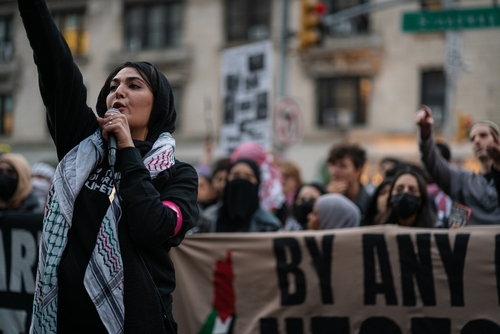
Taliban’s Global Pivot – Russia & China Make Moves!
Russia and China are aggressively courting the Taliban to gain strategic footholds in Afghanistan while Western nations remain hesitant about formal recognition despite gradual diplomatic engagement.
At a Glance
- Russia has removed the Taliban from its terrorist list and plans to appoint ambassadors, signaling a major diplomatic shift
- China accepted a Taliban-appointed ambassador in January 2024 and is pursuing Belt and Road Initiative projects in Afghanistan
- The Taliban regime, now in its third year, has centralized power under Haibatullah Akhundzada while Afghanistan faces severe economic challenges with 90% of citizens in poverty
- India is working to improve ties with the Taliban to counter Pakistan’s influence despite historical tensions
- Western nations continue limited engagement with the Taliban while maintaining criticism of human rights abuses
Competing Powers Seek Influence in Taliban-Controlled Afghanistan
Three years after the Taliban’s takeover of Afghanistan, major world powers are recalibrating their diplomatic approaches to the regime. Russia and China have emerged as frontrunners in establishing formal relations with the Taliban government, despite its continued lack of official recognition by any nation. In January 2024, China accepted a Taliban-appointed ambassador, while Russia recently removed the Taliban from its list of terrorist organizations and announced plans to exchange ambassadors with Kabul.
“There’s a growing feeling that the great powers are starting to compete among themselves to recognize a terrorist organization.” Afghan political analyst Fakhim Kukhdomani told RFE/RL’s Current Time.
These diplomatic maneuvers highlight the strategic importance Afghanistan holds for regional powers. Russia maintains interest in Afghanistan’s mining and energy sectors, with plans to sign contracts for LPG supply. Meanwhile, China is pursuing infrastructure and investment opportunities as part of its Belt and Road Initiative, seeking to establish economic corridors through Afghan territory while securing access to the country’s estimated $1-3 trillion in mineral resources.
Taliban’s Domestic Challenges and Regional Relations
Internally, the Taliban regime faces significant governance challenges. Supreme leader Haibatullah Akhundzada has centralized control while creating parallel institutions that undermine official government structures. The regime’s exclusionary policies favor southern Pashtun Talibs, alienating other ethnic groups. Afghanistan’s economy remains stagnant despite some stabilization, with over 90% of Afghans living in poverty as international aid has dramatically decreased.
Human rights conditions, particularly for women, have deteriorated severely under Taliban rule. Women have been systematically excluded from education, employment, and public life. The Taliban’s ban on opium poppy cultivation, while reducing drug production, has devastated rural economies that previously depended on this crop for survival, exacerbating already dire economic conditions.
Relations with neighboring countries remain complex. Pakistan has grown increasingly frustrated with the Taliban’s refusal to act against the Tehrik-i-Taliban Pakistan (TTP), which continues to launch attacks against Pakistani targets from Afghan territory. Conversely, the Taliban has effectively countered the Islamic State Khorasan Province (ISKP), demonstrating selective counterterrorism priorities aligned with their strategic interests.
India’s Calculated Engagement and Western Hesitation
India has strategically shifted its approach toward the Taliban, engaging in diplomatic talks despite historical tensions. This realignment reflects India’s desire to counter Pakistan’s influence in Afghanistan and protect its substantial investments in Afghan infrastructure projects. Indian officials have met with Taliban representatives to discuss potential cooperation on trade and development initiatives, including the proposed trans-Afghan railway link.
Western nations maintain a more cautious stance. While the United States, United Kingdom, and Germany have engaged in direct talks with Taliban representatives, they continue to withhold formal recognition due to concerns about human rights abuses and terrorist connections. The U.S. has adopted a policy of low-level engagement focused on counterterrorism cooperation and humanitarian concerns, recognizing that regime collapse or renewed civil war would worsen regional security and refugee crises.
Afghanistan as a Potential Battleground for Global Rivalries
Security analysts warn that Afghanistan risks becoming a battleground for competing global and regional powers. As Russia, China, India, and Western nations pursue divergent interests in the country, the Taliban regime faces the challenge of balancing these relationships while maintaining internal control. The possibility of Afghanistan becoming entangled in great power competition raises concerns about renewed instability in a nation that has already endured decades of conflict.
“The Russian intelligence services never cut their contacts with Taliban commanders.” said Kukhdomani.
The Taliban’s diplomatic outreach reflects its desire for international legitimacy and economic support. However, the regime’s continued human rights violations and ties to terrorist organizations present significant obstacles to full international acceptance. As global powers continue their strategic maneuvering in Afghanistan, the country’s future stability remains uncertain, with its people caught between geopolitical calculations and domestic hardships under Taliban rule.




